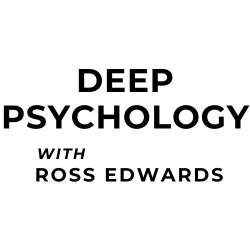[ad_1]
Psychology is more than a subject of study. It is a tool that shapes thoughts, behaviors, and relationships. A deeper understanding of it can improve emotional intelligence, decision-making, and resilience.
It helps people manage stress and build healthier habits. Many use it to strengthen relationships and navigate life’s challenges. Others apply it in professional settings to create better work environments.
Whether for personal growth or career success, psychology offers valuable insights. Learning its principles can lead to a more fulfilling life.
Understanding Emotional Intelligence and Self-Awareness
Emotional intelligence affects how people handle stress and relationships. Those with strong emotional intelligence recognize their own emotions and understand others better.
HelpGuide.org notes that EQ becomes essential during high-pressure moments. IQ and EQ work best together. Individuals with strong EQ often perform better in leadership and teamwork.
This approach relies heavily on self-awareness. It enables individuals to reflect on their behaviors and make constructive adjustments. Small shifts in thinking can improve communication and decision-making.
Psychological concepts like cognitive distortions and mindfulness support emotional growth. Learning these skills helps people manage emotions more effectively. It leads to stronger relationships and a more balanced life.
How does emotional intelligence influence conflict resolution?
It allows people to recognize and control their emotions during disagreements. This leads to better communication, less defensiveness, and more productive solutions. High emotional intelligence also helps people empathize with others and find common ground.


The Role of Psychology in Strengthening Relationships
Healthy relationships require good communication and empathy.
Verywell Mind states that empathy is key to healthy relationships and communication. Understanding others is difficult without recognizing their emotions. Psychologist Edward B. Titchener introduced the term in 1909. Its root term, einfühlung, is German and means “feeling into.”
Psychology helps people understand their behavior patterns and improve interactions. Attachment styles influence how people connect with others. Recognizing these styles can improve relationship dynamics. Conflict resolution strategies like active listening create deeper understanding.
Many struggles in relationships come from miscommunication. Psychological insights help people identify and correct these patterns. Small psychological shifts can make a big difference in personal and professional relationships.
How does body language influence relationships?
Nonverbal cues like eye contact, posture, and facial expressions reveal emotions more than words. Misreading body language can cause misunderstandings between people, regardless of their real intentions. Learning to interpret these signals accurately can improve communication and connection.


The Impact of Psychological Expertise in Professional Fields
Psychological knowledge is valuable in many careers. Mental health professionals rely on it to support those in need. Therapists, counselors, and psychiatrists use psychology to guide treatment plans. Advanced training in mental health allows professionals to make a deeper impact. Many pursue specialized degrees to expand their expertise.
For example, according to Cleveland State University, a Psychiatric Mental Health Nurse Practitioner degree (MSN-PMHNP) prepares professionals to diagnose and treat mental health conditions. These professionals work in clinics, hospitals, and private offices, treating patients. Their role in filling the gap between medical treatment and mental health help is significant.
As per the Cleveland Clinic, individuals frequently mix up psychiatrists with PMHNPs since their jobs overlap. They do, however, follow quite diverse training pathways.
Psychiatrists are medical professionals who have completed four years of medical school and a psychiatric residency. Their focus is on diagnosing mental illness and managing treatment from a medical perspective.
PMHNPs start as registered nurses and complete a master’s or doctoral program in psychiatric nursing. Their approach combines medical treatment with patient-centered care.
For those looking for flexible education options, a convenient way to earn an advanced degree is by enrolling in psych nurse practitioner programs online. These programs allow students to balance their studies with work and personal commitments. Many online programs offer specialized courses in psychiatric assessment, therapy techniques, and pharmacology.
How do online psych nurse practitioner programs compare to in-person ones?
Online programs offer flexibility for working professionals, allowing them to study at their own pace. Some programs include virtual simulations and hands-on clinical training. The coursework remains rigorous, ensuring students receive the same level of education as in-person programs.
Applying Psychological Principles to Manage Stress
Stress and anxiety affect nearly everyone. Psychology offers practical tools to handle them. Cognitive behavioral techniques help shift negative thinking patterns.
Mayo Clinic mentions that CBT is a proven method for treating mental health conditions. It helps with depression, anxiety, PTSD, and eating disorders. Some patients see results with CBT alone. Others use it alongside medication or other therapies. Studies show that CBT can improve symptoms and long-term mental health.
Moreover, mindfulness brings awareness to the present moment. Understanding how stress impacts the brain makes coping easier. Exercise, meditation, and problem-solving can reduce stress levels.
Knowing when to get expert assistance is also crucial. People who use psychology-based strategies build stronger mental resilience. Managing stress well leads to better overall well-being.


How can food and nutrition influence stress management?
Omega-3 fatty acids and magnesium help regulate stress hormones. Too much caffeine and sugar can lead to anxiety and mood swings. A well-balanced diet supports brain health, improves emotional stability, and helps the body manage stress more effectively over time.
Understanding psychology goes beyond personal growth. It shapes how we connect with others and approach our careers. Emotional intelligence helps build stronger relationships and improves communication. Psychological insights make it easier to manage stress and mental health challenges.
They also foster resilience in tough situations. Learning these principles allows people to handle emotions better and support others effectively. In the workplace, psychology enhances teamwork and leadership. It also encourages empathy and problem-solving. A deeper understanding of human behavior leads to more meaningful interactions.
Follow Deep Psychology and join tens of thousands
of like-minded people today.
[ad_2]

